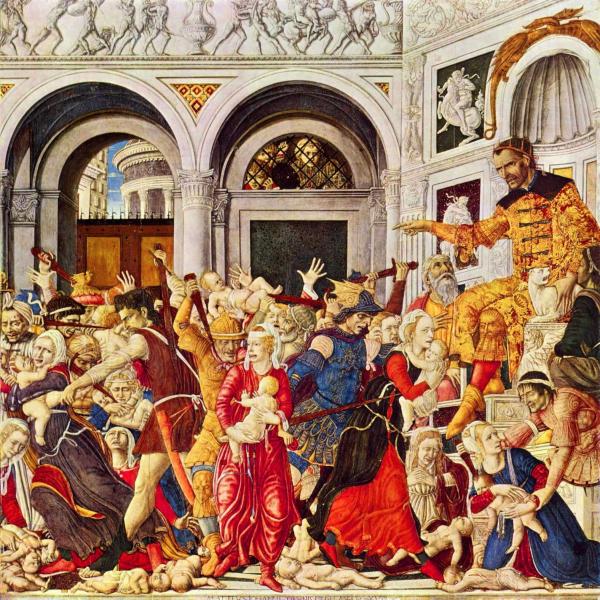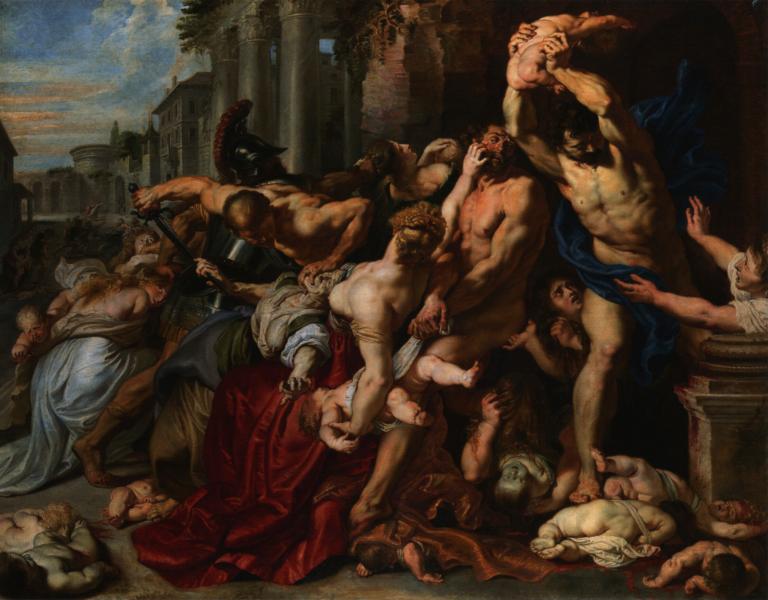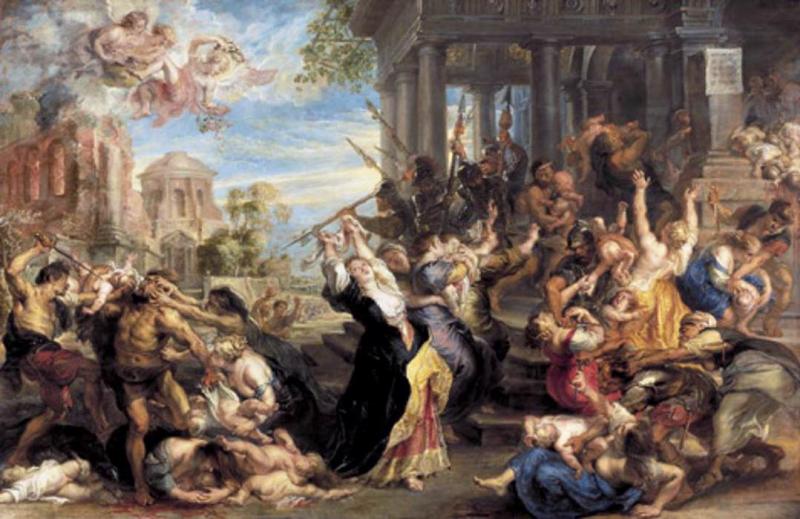
Matthew 2
1 Jesus was born in Bethlehem in Judea. This happened while Herod was king of Judea. After Jesus' birth, Wise Men from the east came to Jerusalem. 2 They asked, "Where is the child who has been born to be king of the Jews? When we were in the east, we saw his star. Now we have come to worship him." 3 When King Herod heard about it, he was very upset. Everyone in Jerusalem was troubled too...7 Then Herod called for the Wise Men secretly. He found out from them exactly when the star had appeared. 8 He sent them to Bethlehem. He said, "Go! Make a careful search for the child. As soon as you find him, bring me a report...11 The Wise Men went to the house. There they saw the child with his mother Mary. They bowed down and worshiped him. Then they opened their treasures. They gave him gold, incense and myrrh. 12 But God warned them in a dream not to go back to Herod. So they returned to their country on a different road. 13 When the Wise Men had left, Joseph had a dream. In the dream an angel of the Lord appeared to him. "Get up!" the angel said. "Take the child and his mother and escape to Egypt. Stay there until I tell you to come back. Herod is going to search for the child. He wants to kill him." 14 Joseph got up. During the night, he left for Egypt with the child and his mother Mary. 15 They stayed there until King Herod died. So the words the Lord had spoken through the prophet came true. He had said, "I chose to bring my son out of Egypt."(Hosea 11:1) 16 Herod realized that the Wise Men had tricked him. So he became very angry. He gave orders concerning Bethlehem and the area around it. All the boys two years old and under were to be killed. This agreed with the time when the Wise Men had seen the star. 17 In this way, the words the prophet Jeremiah spoke came true. He had said, 18 "A voice is heard in Ramah. It's the sound of crying and deep sadness. Rachel is crying over her children. She refuses to be comforted, because they are gone." (Jeremiah 31:15) 19 After Herod died, Joseph had a dream while he was still in Egypt. In the dream an angel of the Lord appeared to him. 20 The angel said, "Get up! Take the child and his mother. Go to the land of Israel. Those who were trying to kill the child are dead."...Warned in a dream, Joseph went back to the land of Galilee instead. 23 There he lived in a town called Nazareth. So what the prophets had said about Jesus came true. They had said, "He will be called a Nazarene."
Scripture taken from the Holy Bible,
NEW INTERNATIONAL READER'S VERSION (NIRV) ®.
Copyright © 1996, 1998 Biblica. All rights reserved throughout the world. Used by permission of Biblica.
Historical Background
According to church tradition, the baby boys that were killed were 10,000 but conservative estimates are in the low dozens. The first account of the Massacre comes in the Gospel of Matthew, written some 80 years after the Massacre. Herod the Great (73 BC – 4 BC), was the king of Idumea, Judea, Samaria and Galilee. Matthew's account is consistent with the character of Herod, who was ruthless in defense of his power and notorious for his brutality…The massacre is not mentioned by Roman Jewish historian, Josephus. Some historians take the silence of Josephus as evidence that the massacre did not take place.Josephus records several other examples of Herod’s willingness to commit such acts to protect his power, noting that he "never stopped avenging and punishing every day those who had chosen to be of the party of his enemies."...R. T. France, New Testament scholar argues for plausibility by offering an explanation for a possible omission of the story by Josephus, “The murder of a few infants in a small village [is] not on a scale to match the more spectacular assassinations recorded by Josephus”.The first non-Christian reference to the massacre is recorded four centuries later by Macrobius (c. 395-423), who writes in his Saturnalia: "When he [emperor Augustus] heard that among the boys in Syria under two years old whom Herod, king of the Jews, had ordered to kill, his own son was also killed, he said: it is better to be Herod's pig, than his son."
THE MASSACRE OF THE INNOCENTS OF BETHLEHEM
circa 1488
Artist: Matteo di Giovanni
Location: National Museum of Capodimonte, Naples

MASSACRE OF THE INNOCENTS (1st version)
circa 1611-1612
Artist: Peter Paul Rubens
Location: Art Gallery of Ontario, Toronto

MASSACRE OF THE INNOCENTS (2nd version)
circa 1636-1638
Artist: Peter Paul Rubens
Location: Alte Pinakothek, Munich

- What are some of the differences in the 3 different paintings?
- What do you think the artists included in the paintings based on tradition and what was based on the biblical story?
- In the story, what are some of the differences between Herod, the wise men (probably non-Jewish scholars from the area of Persia), and Joseph and Mary?
- Sometimes God protects us from evil; sometimes He comforts when evil is done. How do you see this in this story? How has He protected or comforted you?